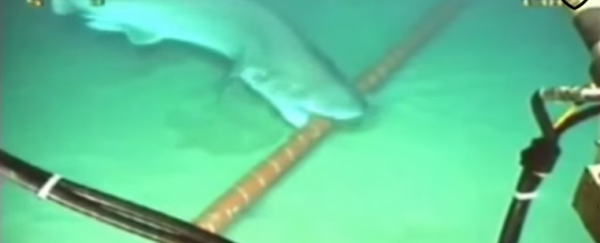Over the past few months, ruptures have been appearing in the submerged Asia-America Gateway (AAG) cable system that supplies a great deal of Southeast Asia with its Internet. This week, a hole appeared that was so severe, it throttled connections in Vietnam, causing millions of its residents to deal with Internet that was either incredibly slow, or frustratingly sporadic.
The rupture was located on the S1H section of the AAG, located off the coast of Ba Ria, in Vietnam's coastal city of Vung Tau. Accordion to Martin Anderson at The Stack, this particular connection is one of just five pipes that supply Vietnam's almost 93 million people with internet. "Other recent breakages in the 12,000 mile (20,000 km) trans-Pacific cable have been responsible for similar network blackouts or slow-downs in Asian locations including Hong Kong, the Philippines, Brunei, Singapore and Thailand, as well as Vietnam, in one case requiring 20 days to repair," he says.
Completed in 2009, the AAG has been experiencing a few too many tears of late to be waved away as an accident. Last September, another rupture was found in the cable about 68 km off the coast of Hong Kong, which followed a similar tear that occurred two weeks earlier.
But it wasn't foul play, well, not as we know it. "AAG's trans-Pacific enemy is thought by some to be the dangerous but fairly apolitical shark, attracted by the electromagnetic field that the cable generates," says Anderson, "and inspiring Google to shield its own Pacific cabling with 'bullet-proof vest' material Kevlar."
You can see one of the apolitical sharks in question in the video footage above, filmed late last year. Is it just me, or does that cable suddenly look delicious the moment the shark takes a good ol' chomp at it? It's a real worry when you look at a shark and get meal envy.
Sources: The Stack
